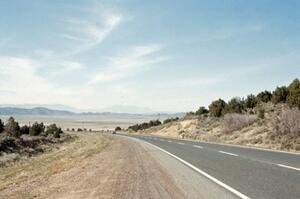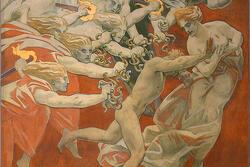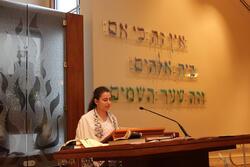I Came to Explore the Wreck
Boxes of slide reels still cover my repurposed kitchen table. To help with storage, a nearby closet offers enough space for a whopping twelve boxes for a total of sixteen, all compiled by my paternal Grandfather. I’m no mathematician but I can easily calculate that, with sixteen boxes of eighty slides, there must be over twelve hundred squares of film. A few months ago, I decided to catalogue these pictures—or, at the very least, the high quality ones—in order to better understand my father’s childhood, which he seldom discusses. I have learned about much more than just that.
The slides, prepared between 1960 and 1988, offer a glimpse into a history not entirely my own. These pictures, recolored, spot-fixed, and printed, are not mine. They are artifacts of a separate universe, one preceding cell phones, personal computers, and me, a universe ruled by funny cars and odd fashion choices. Perhaps the greatest difference between the world represented in the slides and the one today is the cast of characters. Many of the people in the slides are gone; yet, in the pictures, I see them traveling the world, posing in front of bakeries and old houses, and reveling in a time so extinct that frankly, I cannot explain the confusion and simultaneous beauty of their presence in the images.
Of course, my experience with the slides is but a microcosm of the strange relationship between young adults and their collective history. How should adolescents, inhabiting a world entirely different than that of their most recent ancestors, attempt to reconcile the past with the present and the future? More importantly, to what degree can young people adequately extract meaning from a world available to them only through old technology and textbooks?
Adrienne Rich wrestles with these questions in her poem, “Diving into the Wreck,” as she narrates the allusory experience of a woman solitarily venturing into the ruins of a marine disaster. The adventure represents women exploring their history. Rich tells of how women can discover “the wreck and not the story of the wreck:” rather, sufficient research leads to the discovery of truth, the opportunity to own past moments previously hidden in devastation. At the end of the poem, Rich suggests the need, “by cowardice or courage,” to find a way “back to this scene” and continue seeking ownership of history. She mentions the “book of myths in which our names do not appear,” and in doing so, she incites the basic truth that for so much of time, women have been left out of memory. (It is called HIStory, after all.)
My favorite implication of Rich’s poem is how she makes no effort to describe any salvation from "the wreck." Instead, the poet reveals that the adventure is perpetual, just as any exploration of history should be unending. The real unearthing of history requires commitment. For example, when I took on the project of searching through the slide reels, I didn’t realize that I had begun my journey into an abyssal wreck. Yes: observing the past is very much like diving into a wreck, willingly entering a unique intellectual chaos, and trying to find meaning in a distant “book of myths.”
Yet, I must confess that the images will never leave me. I hope that everyone will, at some point in their lives, have the opportunity to explore the past as I have: to sort through old slides, to study old styles, to listen to the stories they never even knew were there.
This piece was written as part of JWA’s Rising Voices Fellowship.







